Industry Associations and Advocacy
We partner with industry and business organizations to share perspectives on policies and issues that affect our industry, our business and the communities where we operate. These partnerships address a number of areas of mutual interest, including wood fiber supply, environmental regulations and carbon emissions management, transportation standards, third-party certification of our products, and the economic impact of our operations on local and national scales.

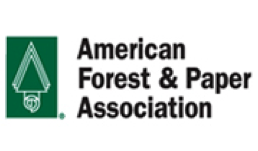
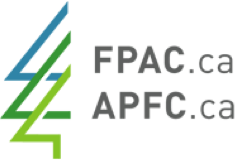

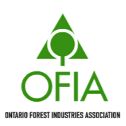

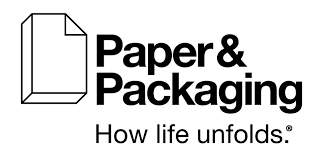
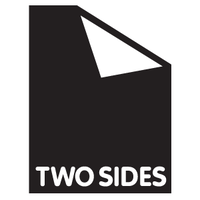
Resolute is a member of a number of industry associations and scientific institutions, including FPInnovations, American Forest & Paper Association (AF&PA), Forest Products Association of Canada (FPAC), Ontario Forest Industries Association (OFIA), National Council for Air and Stream Improvement (NCASI), the Paper & Packaging Board, Québec Forest Industry Council (QFIC) and Two Sides. In addition to providing funding to these organizations, members of Resolute’s management and internal issue experts participate in board meetings, chair committees and play various supportive roles.
Charters and Agreements
Resolute subscribes to several external environmental, social and economic charters in order to promote sustainable development within our organization and to act in a manner consistent with internationally recognized best practices and methods of scientists and other external experts.
When Resolute joined the elite World Wildlife Fund® (WWF®) Climate Savers program in November 2011, we made commitments that were among the most ambitious in our global industry to reduce our greenhouse gas (GHG) emissions, among other specific environmental performance goals. We committed to reducing absolute GHG emissions (scope 1 and 2)1 to 65% of 2000 levels by 2015. At the end of 2015, our reduction had reached an impressive 70%, and Resolute's participation in the program was completed with the expiration of the five-year term of the agreement.
In 2020, Resolute achieved an 85% reduction in scope 1 and 2 GHG emissions compared to 2000 levels, and in March 2021, we announced a commitment to reduce scope 1 and 2 GHG emissions by 30% against 2015 levels by 2025. We are also committed to operating within FPAC's established GHG emission reduction framework, the ''30 by 30'' Climate Change Challenge, which aims to reduce the industry's emissions by 30 megatonnes by 2030. The Canadian forest products industry’s pledge is equivalent to more than 13% of the Canadian government’s emissions target.
 We are involved in a number of other initiatives that promote sustainable development, including certification to internationally recognized forest management and chain of custody (CoC) standards. Forest certification and fiber tracking help to ensure the sustainability of our fiber supply and other forest values, and enable manufacturers and traders to avoid timber and timber products from unacceptable sources.
We are involved in a number of other initiatives that promote sustainable development, including certification to internationally recognized forest management and chain of custody (CoC) standards. Forest certification and fiber tracking help to ensure the sustainability of our fiber supply and other forest values, and enable manufacturers and traders to avoid timber and timber products from unacceptable sources.
With the exception of the tissue converting operation in Hagerstown (Maryland) and the three U.S. sawmills we acquired in 2020, 100% of Resolute’s manufacturing facilities have a CoC tracking system that meets one or more of the following standards: Sustainable Forestry Initiative® (SFI®), Programme for the Endorsement of Forest Certification (PEFC) and Forest Stewardship Council® (FSC®). All of these require that 100% of the fiber processed meets minimum standards (also known as fiber sourcing standards, controlled wood standards or due diligence) that relate to risks of illegal logging, wood harvested in violation of human rights and other important sustainability issues.
Our adherence to third-party-verified forest management standards is an important competitive advantage. It provides our customers with the assurance that our forests are responsibly managed according to rigorous standards developed specifically for local forest conditions. 100% of our managed forests are certified to at least one of two internationally recognized forest management standards (SFI and FSC). The standards require third-party certification audits and are intended to protect biodiversity, water quality, wildlife habitat, species at risk and forests with exceptional conservation value. External audits for SFI and FSC are conducted at our operations on a yearly basis, depending on the standard(s).
Resolute also adheres to the ISO 14001 international standard, which provides a consistent system-based approach to improving environmental performance by applying an Environmental Management System (EMS) across our operations.
Non-Governmental Organizations and Coalitions
Resolute supports many organizations and initiatives that promote the use of the wood products we manufacture, as well as programs that educate the general public about the true impact of our operations, from forestry’s relatively small carbon footprint to our long tradition of community support.
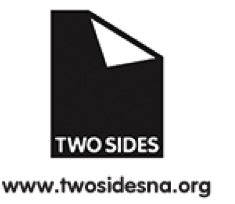 In 2014, Resolute joined the Two Sides group to collaborate in its mission of promoting the sustainability of print and paper. One of the organization’s principal objectives is to dispel common environmental misconceptions by providing users with verifiable information about why print and paper is an attractive, practical and sustainable communications medium to reach customers, educate students and collaborate with co-workers.
In 2014, Resolute joined the Two Sides group to collaborate in its mission of promoting the sustainability of print and paper. One of the organization’s principal objectives is to dispel common environmental misconceptions by providing users with verifiable information about why print and paper is an attractive, practical and sustainable communications medium to reach customers, educate students and collaborate with co-workers.
Other Resolute memberships include Coalition for Transportation Productivity (United States), Southern Governor’s Association (United States), Conseil du Patronat (Quebec) and the Ontario Chamber of Commerce, among many others.
1 Scope 1 GHG emissions are greenhouse gas emissions that come from sources owned or controlled by the company, such as the combustion of fuel at mills to generate heat to dry paper or generate electricity. Scope 2 GHG emissions are greenhouse gas emissions that result from company activities occurring at sources owned or controlled by third parties and are associated with the production of purchased electricity or steam. Scope 2 emissions physically occur at the facility where electricity or steam is generated.